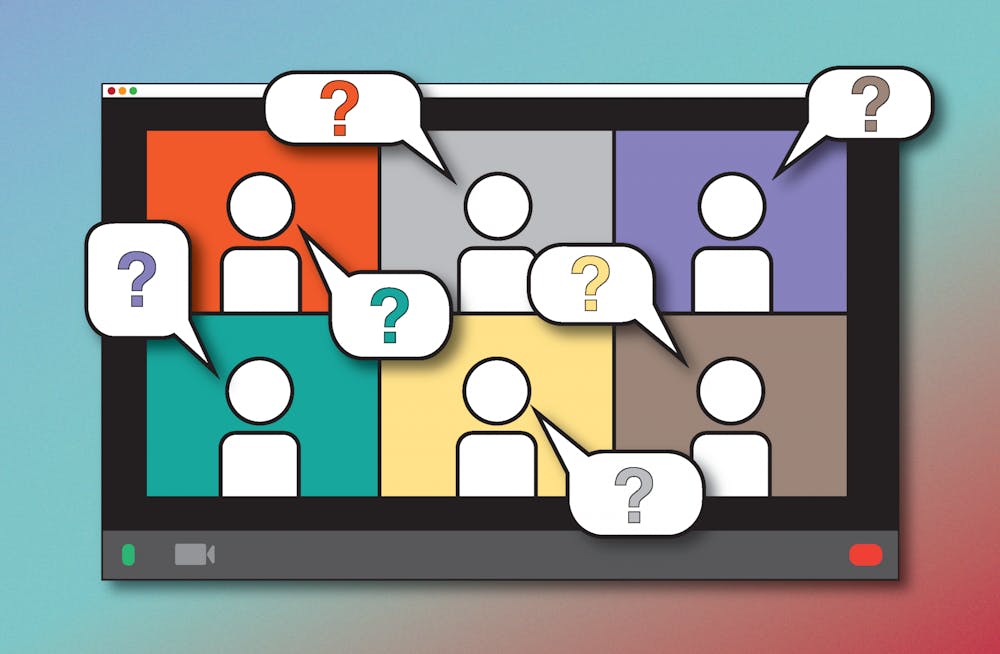Miami University will continue to offer most first-year transition and engagement events online through the fall semester. With in-person classes set to begin Sept. 21, the university will enforce social distancing guidelines and other COVID-19 regulations. To that end, campus events designed to integrate first-years into the Miami community will be held virtually.
Jayne Brownell, vice president for student life, said there is a silver lining for students who have opted to remain online for the full semester.
“Most of the programs that we’re doing on campus could be open to remote students very easily,” she said. “And we hope that they will participate.”
Residential students will have opportunities to “get to know people who are in their own hall,” Brownell said. “But the bulk of [programming] is going to be equally accessible to on-campus and off-campus students.”
Following Miami’s Welcome Weekend, which saw 47 events held virtually from Aug. 14 to Aug. 17, Miami’s Director of Orientation and Transition Programs, Buffy Stoll Turton, is optimistic about the rest of the semester.
“Being online opened up options for us that we never really had before,” Stoll Turton said.
Her department was able to create nine new spaces for students of similar identities to virtually connect with current students and staff. She plans to make this opportunity available even after COVID-19 no longer presents logistical issues.
Brownell shares Stoll Turton’s optimism regarding this year’s first-year programming. In the future, she envisions a Mega Fair that runs both on-campus and virtually to better engage a full range of students.
Portions of orientation are likely to remain online as well, where students can browse relevant information for themselves rather than moving through identical programs in person.
While many students may be disappointed to miss out on large events like Mega Fair and the first-night block party, Stoll Turton emphasized the benefits of small group online programming.
“Zoom limits to a couple hundred people at a time,” Stoll Turton said. “The goal isn’t necessarily 4,000 people at one online event. We’re scaling down a lot of the experiences.”
Moving forward with the semester, she hopes that intimate online sessions will continue to foster community.
Enjoy what you're reading?
Signup for our newsletter
Brownell highlighted the Late Night Miami program for first-years who are unsure where to start getting involved.
Organized by Miami Activities and Programming (MAP), Late Night Miami hosts events for interested students every weekend. Despite current limitations on gathering, Brownell suggested that first-years look into Late Night Miami’s robust schedule this semester.
“I hope that people find those [events] now and keep them going in the future,” Brownell said.
Most of MAP’s programming this semester is virtual per city and university guidelines, so students who opt to stay online will have the same opportunities as those on campus.
Brownell said Miami’s Division of Student Life has worked extensively over the summer to answer the question, “How do you build community when you aren’t face to face?” In the immediate future, the first-year experience will be what students make of the available opportunities.
First-year Grace Fleischer, an organizational leadership major, has a simple method to keep herself engaged with campus life: say yes to new opportunities. Through Mega Fair, she joined a capella group Just Duet, Best Buddies Friends Choir and the Active Minds mental health advocacy group.
Even though club meetings have been entirely online, Fleischer said she feels like a part of the community already.
“If it was a non-COVID world, I’d probably be in 10 more clubs,” she said. But her attitude of jumping in right away would be the same.
First-year Zoe Hopper, a Utah native and sociology major, has struggled to connect to the culture of Miami from two time zones away.
“I’ve never really lived in the Midwest, so it’s hard for me to get that feeling,” Hopper said. “But meeting everyone and trying to get a feel like I’m out of high school and have moved on from that, [the university] has been doing a pretty good job of that.”
Despite being unable to attend most of the scheduled events during welcome weekend and the first 50 days, Hopper has found her community in Miami Club Skating.
“We do a lot of Zoom calls so we can meet the other girls in the club, a lot of bonding activities,” Hopper said.
For most clubs, the focus this year is on building relationships. Club Skating is unable to meet on the ice, but members can still get together virtually with people of similar interests.
Overall, Stoll Turton has three pieces of advice for freshmen who want to be an active part of the Miami community: be patient, get creative and show up.
“It’s not fair to anybody to expect a normal, in-class, in-person, on-campus experience,” Stoll Turton said. “We need to consider what success looks like in this circumstance."




